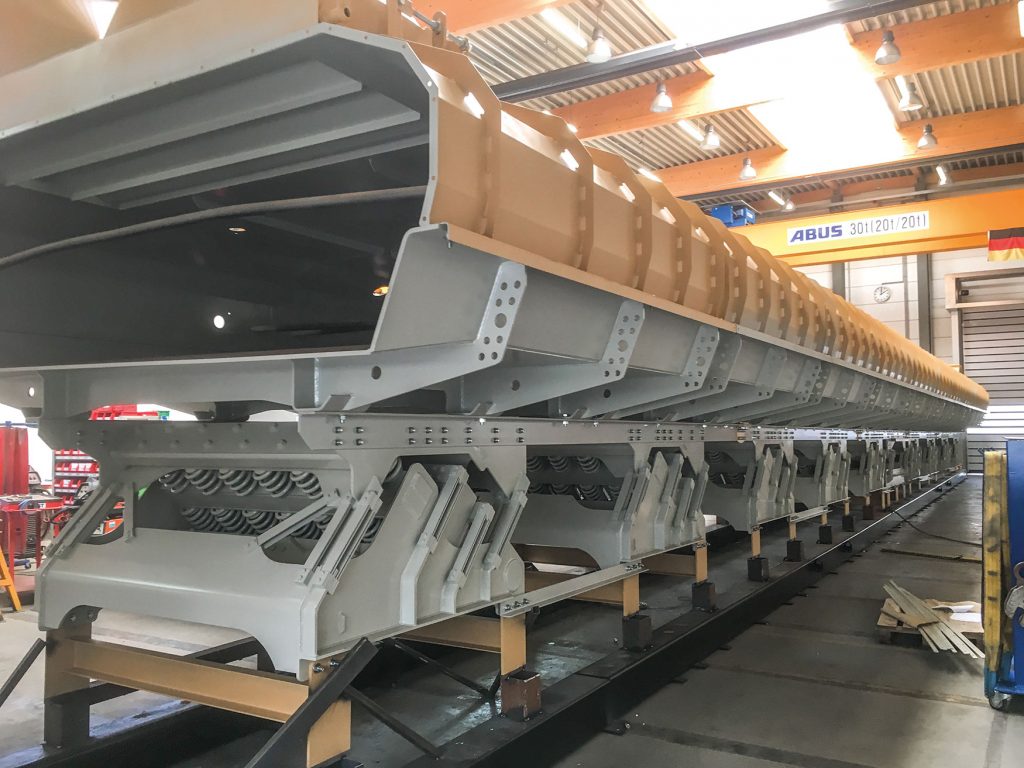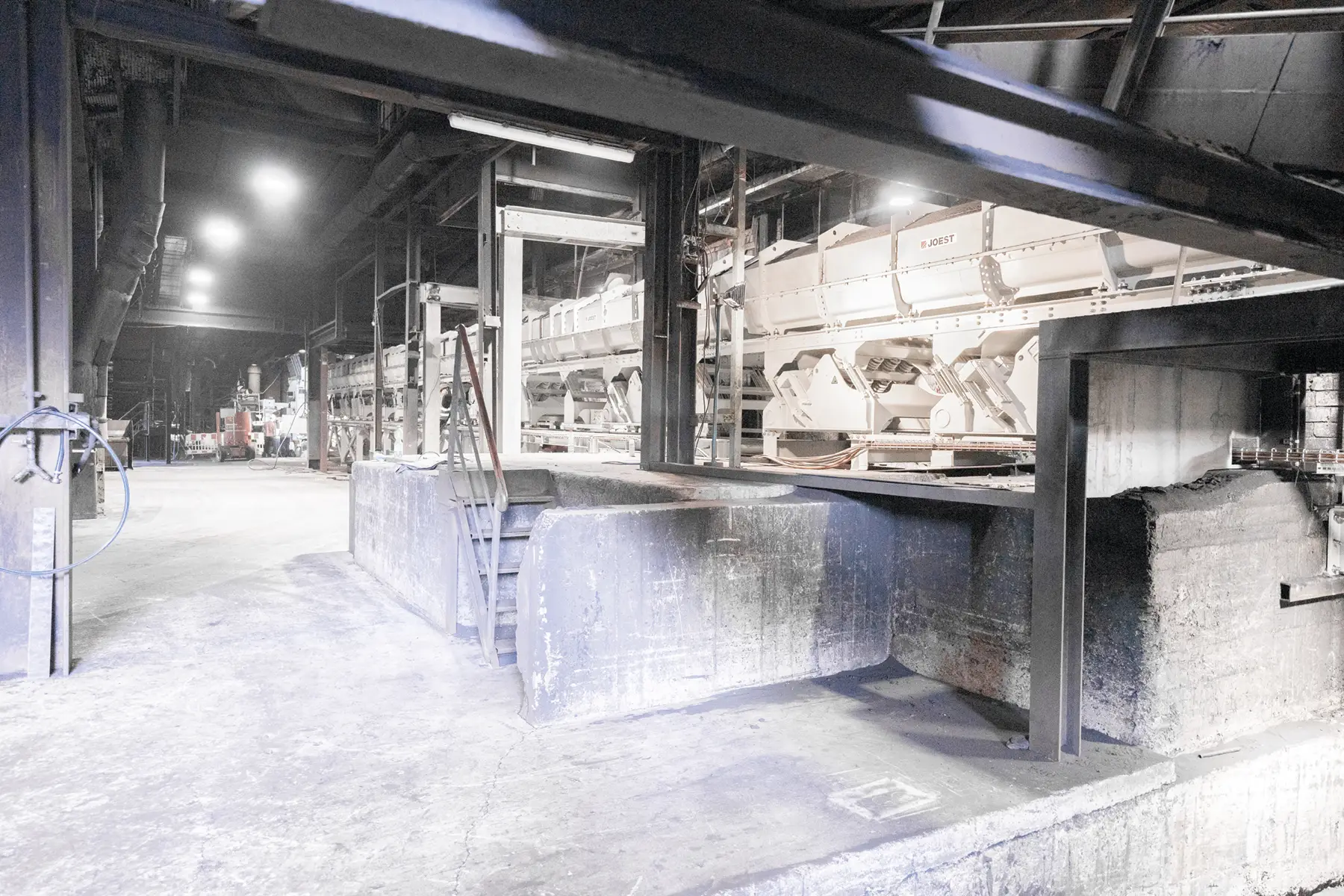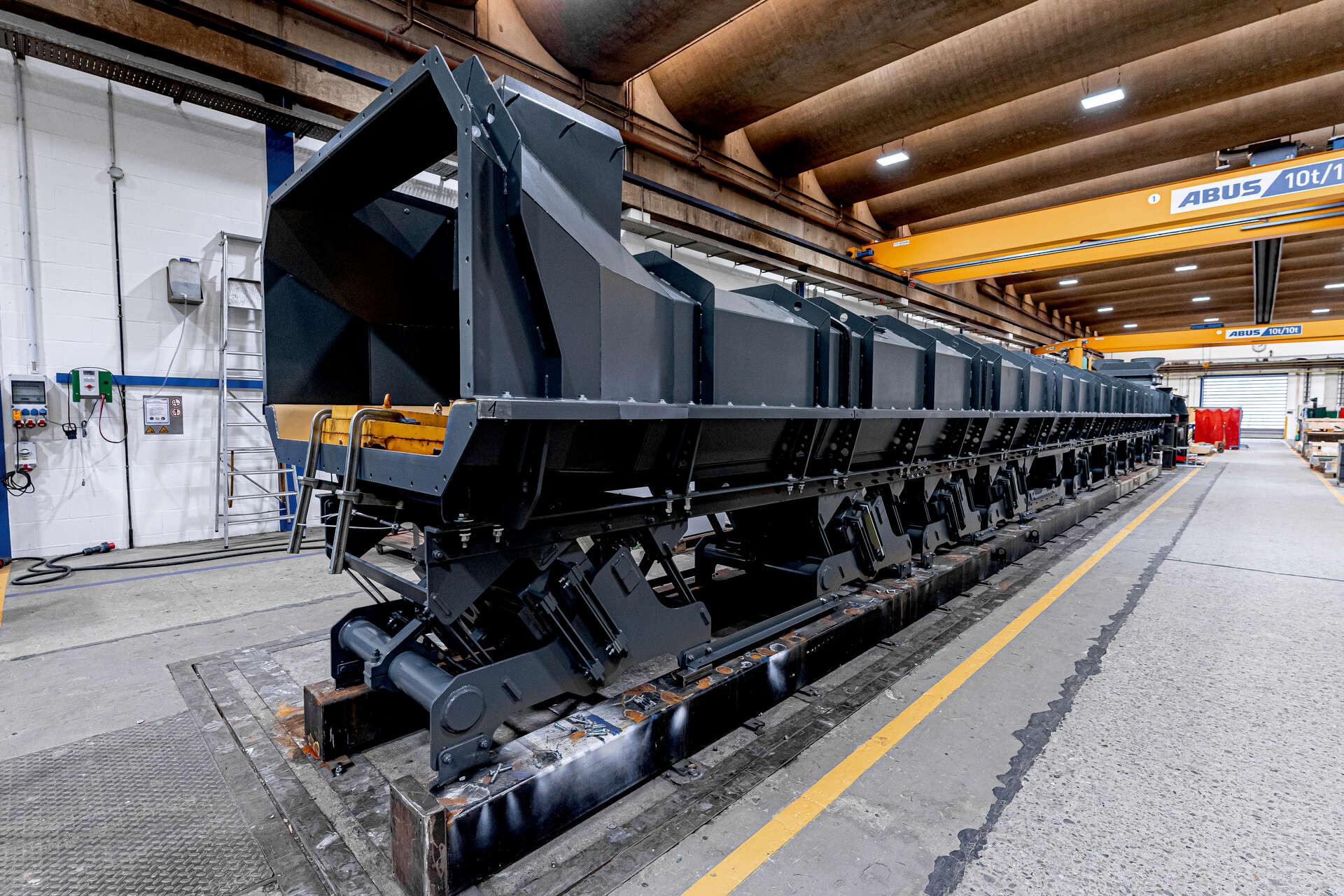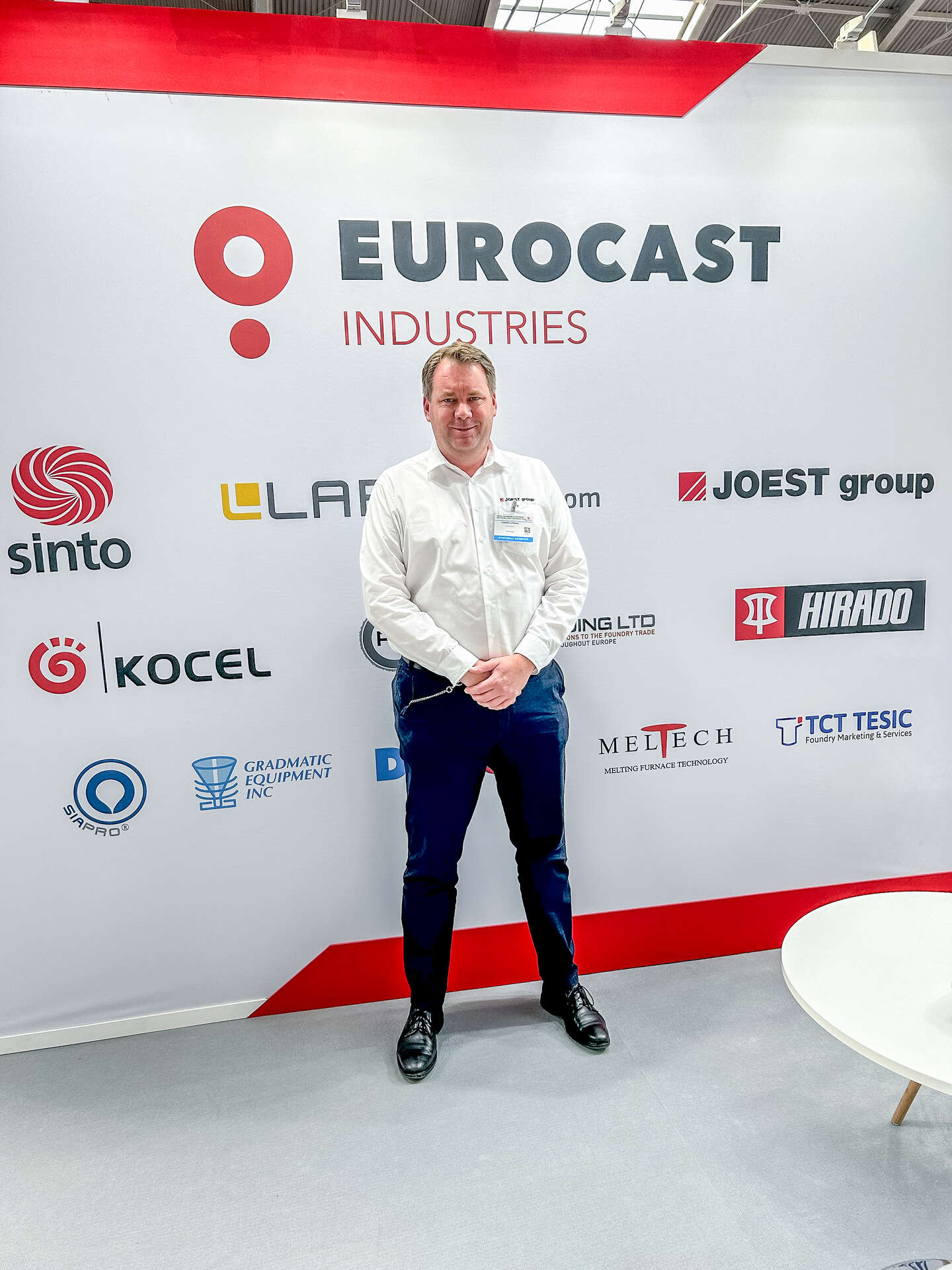METALLURGY
Cast iron sewer parts are cooled on 27 meter casting cooler

Cast iron parts are cooled from 550°C to 80°C on a vibrating machine.
A client from Poland placed an order with JOEST to manufacture a casting cooler for cast iron sewer parts. In the 27 meter long and 3.2 meter wide machine, the parts are cooled from max. 550°C to 80-100°C. The effective machine surface area of 27×3.2 meters, is necessary, to ensure a sufficient area of contact between the cast iron parts and the cooling air. This is thermodynamically required for the intended heat exchange to be effective.
The challenge in manufacturing this 40 ton casting cooler was the very limited height available by the client, due to the existing space in his plant.
The parts come from two separate moulding lines – a horizontally divided flask mould line and a vertically divided flask less mould line. The conveying principle is based on a low-frequency, near resonance, vibration. Thus, only a very small drive power is needed. The 22kW drive is located in the middle of the machine. In effect of the low-frequency vibrations and the resulting low acceleration, the parts are conveyed gently and quietly.
The principle of this cooling rests on the convective heat exchange between the cast and the air in a counter flow. This process features the highest cooling efficiency.
To allow for thermal expansion, the trough is divided into multiple sections which are screwed onto the trough frame in a flexible design. The air- and dust-tight hood is screwed to the trough.
In order to minimize the transmission of vibrations into the base, the machine includes an active compensation technology using vibration dampers.
The casting cooler was delivered to the client in Mai 2019 and will be commissioned later this year. JOEST casting coolers are successfully used in the foundry industry for decades. Find the best possible solution for your application with JOEST-Technology.
Weitere Beiträge
As part of the JOEST group, MOGENSEN has been a trusted provider of high-performance screening and sorting technologies for many years. The new website now showcases this expertise more clearly and with a modern touch.
On International Women’s Day, we celebrated the great women in our company who have made a significant contribution every day with their commitment, expertise and passion. Their efforts have been a driving force behind our success and an inspiration to us all.
JOEST South Africa was commissioned to manufacture and supply replacement vibrating feeders for a critical power generation facility. The new units are designed to replace equipment that had been in operation for over 20 years, ensuring the continued reliability and efficiency of the plant.
MOGENSEN joins China’s food security project as an official supplier, supporting the nation’s plans to strengthen domestic grain production capabilities. The appointment by COFCO, China’s largest state-owned agricultural company, includes the deployment of multiple precision screening systems for processing rice, wheat and soybeans, among other grains. This long-term initiative is in line with China’s new food security law, which went into effect on June 1, 2024.







